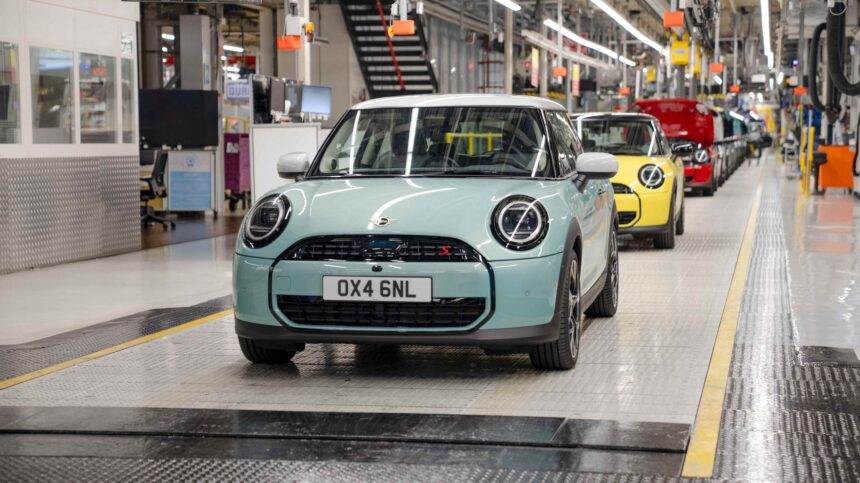UK car manufacturing output experienced a significant decline of 15.3% in October, marking the eighth consecutive month of contraction as reported by the Society of Motor Manufacturers and Traders (SMMT). This downward trend is attributed to manufacturing plants undergoing retooling for the production of the next generation of zero-emission vehicles.
In October, a total of 24,719 battery electric, plug-in hybrid, and hybrid electric cars were manufactured in the UK, accounting for nearly a third (31.9%) of the total output. However, there was a 32.6% decrease in volume compared to previous months. Since the beginning of the year, UK car manufacturers have produced 239,773 electrified vehicles, with 71.8% of them being exported to international markets.
Both domestic and export markets saw a decline in volumes in October, with a 4.7% decrease in domestic production and a 17.6% drop in exports. Year-to-date figures show an overall 10.8% decrease in UK car production, totaling 670,346 units. The decline is mainly attributed to a reduction in exports, which fell by 14.8% to 511,221 units.
The challenging market conditions and a slowdown in the transition to electrification have been reflected in recent announcements by manufacturers and suppliers in the UK and Europe. The UK Government’s Zero Emission Vehicle (ZEV) Mandate poses an additional challenge to UK producers, who must meet mandated EV share numbers or face substantial fines. In response to these pressures, Stellantis recently announced a closure plan for its Luton plant.
SMMT Chief Executive, Mike Hawes, expressed deep concern over the current state of the automotive industry, emphasizing the significant investments in plants and new zero-emission products that are under pressure. The global market slowdown, especially for EVs, is impacting production output, with the UK facing particular challenges due to stringent targets and timelines without sufficient consumer incentives to drive demand.
Hawes called for urgent action, highlighting the need for a rapid review of regulations and the development of a comprehensive Industrial Strategy to ensure the industry’s competitiveness. He stressed the importance of government collaboration to address the unsustainable costs of stimulating demand and meeting regulatory targets.
The article also includes visual elements such as images and a newsletter banner, providing readers with additional context and opportunities for engagement. By reiterating key points and insights from the original content, the rewritten article aims to deliver a unique and informative perspective on the challenges facing the UK car manufacturing sector.







